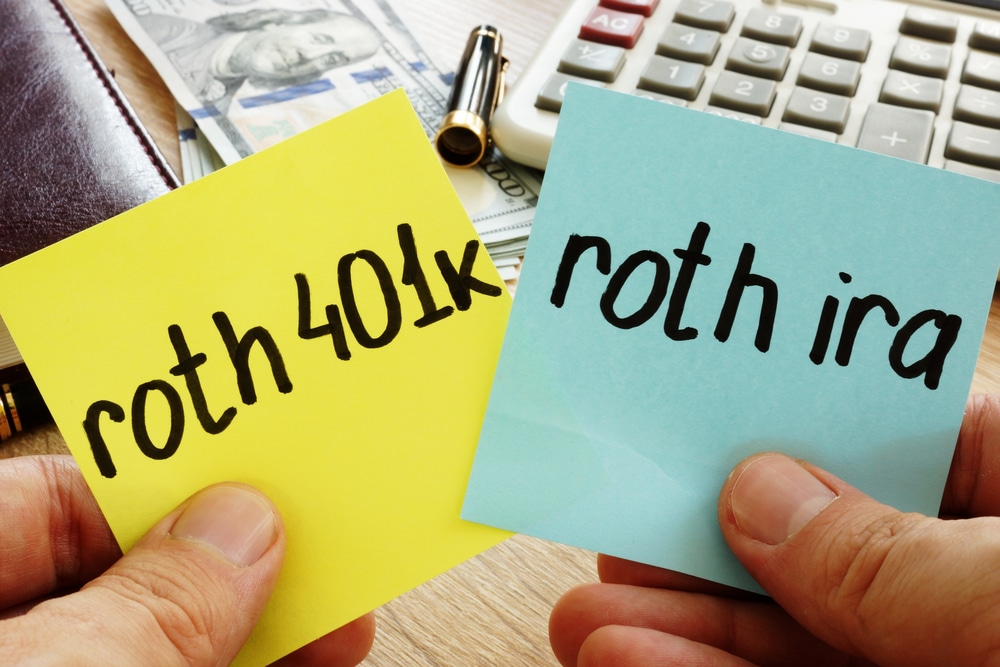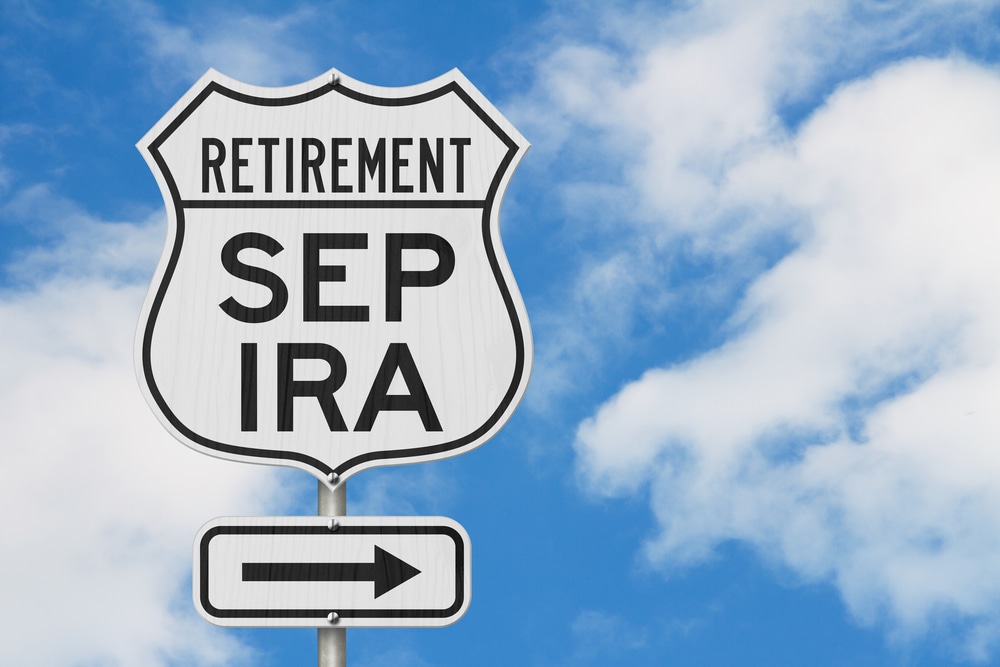401(k) Versus An Individual Retirement Account (IRA) – What You Need To Know!
When it comes to investing for retirement, Americans have numerous options. An individual retirement account and a 401(k) plan are the most common options.
Because these two plans are so similar, it isn’t surprising that many confuse the two. Both provide tax advantages and the flexibility to invest in commodities such as mutual funds, but how is a 401k different from an individual retirement account?
In this article, we’ll discuss the differences between these two retirement accounts and help you determine which one is a better option for your retirement savings.
What Is a 401 k Plan?
Many employers provide 401 k plans as a perk to help employees save for their retirement. If your company does, you can opt for a 401 k to start saving before taxes in an account set up by the employer.
The money you contribute toward the retirement savings account is deducted from your paycheck each month.
The Pros and Cons of a 401 k Investment
We’ve listed the pros and cons to help you determine whether a 401 k plan is the right choice for you.
Pros
- 401 k plans offer a higher contribution limit
- Allows employer matching contributions
- Offers tax advantages
- Easy deductions
- You can take a loan on your 401 k investment
Cons
- Limited investment options
- Employees can only open a 401 k if their employer allows this
- No access to funds until you’re 59.5
- Higher associated costs and fees
401 k Investment Options
The funds are invested in a variety of investments, usually a range of mutual funds. Moreover, the fund selections are tailored to certain risk tolerances, allowing employees to accept only as much risk as they are comfortable with. 401 k investments are tax-free, and the savings accumulate, earning investors compound interest.
Roth 401k plans are also available. Unlike a traditional 401 k, these investments are not tax-deductible because they are contributed to with after-tax dollars. However, qualifying payouts are tax-free.
Also see what is a solo 401(k).
Employer Contributions
Many employers will match their employee’s contributions up to a particular amount—usually a portion of your annual taxable income to promote participation in 401k savings.
If your employer matches your contributions up to three percent of your income, for example, the total contribution will be six percent of your salary. In many companies, the employer match is only a fraction of your contribution—for example, 50 cents for every dollar you invest.
Employee Contributions
401 k Plans Decrease Your Taxable Income
A 401 k employee contribution is made before a tax deduction, which means that the sum of the contributions will decrease your taxable income by the value of these contributions. Suppose you earn $20,000, for example, and contribute $1,000 to a 401 k plan. In that case, your taxable income for that year will be $19,000.
Employees can contribute a maximum of $20,500 annually to a traditional or Roth 401k in 2022, and a $6,500 additional contribution is permitted for those who are 50 and older.
Types of 401 k Plans
There are two main types of 401 k investment options. They are:
1. Traditional or Tax-deferred 401 k Plan
A tax-deferred or traditional 401 k plan lets you save money now while also saving for your future. Before your income taxes are deducted, you can set aside a portion of your earnings to reduce your overall taxable income and ultimately pay less income tax.
2. Roth 401 k Plan
Your contributions are deducted after taxes in a Roth 401k, which means that you pay tax when you contribute to the IRA instead of having to pay taxes when making withdrawals.

What Happens to the 401 k If You Leave Your Job?
Suppose you leave the company. In that case, you can continue to contribute to the savings account, but the company will no longer make any contributions. Moreover, if you leave your job, you could risk losing a portion of the contributions.
Vesting
Another point to remember concerning 401k plans is that, through a process called “vesting,” they often reward loyalty to an employer. You need to become “fully vested” to own all contributions, including your employer’s contribution, or you could lose a portion of it if you quit your job.
The requirements for vesting differ from one plan to another. Some 401 k plans vest their employees immediately, while others do this gradually or all at once after a certain number of years.
What Is an Individual Retirement Account (IRA)?
An individual retirement account or IRA is a savings account that enables anyone with an income to contribute toward a retirement savings account.
The Pros and Cons of Investing in an IRA
If you’re considering an IRA, you might want to take note of the pros and cons.
Pros
- More options for investment
- You’ll have more control over the associated costs
- Offers tax-deferred growth
- Protection from bankruptcy
- Anyone can invest
Cons
- Contribution limits for IRAs are lower than they are for 401 k plans
- Penalties for early withdrawals
- Adjusted gross income (AGI) limitation
- It does not allow you to take a loan
See our article on how many IRA accounts you can have.
IRAs Offer Tax Benefits
IRAs offer several tax benefits. Your savings can accumulate tax-deferred or tax-free until you withdraw them at retirement. This unique tax benefit enables your money to compound faster, allowing you to save more money over time.
In 2022, the yearly contribution limit for an IRA is $6,000, though this amount is usually increased every few years. Every year, anyone over the age of 50 can invest an additional $1,000. See our article on saving to retire at 40.
How to Invest in an IRA
You can open an individual retirement through a variety of financial institutions and the process will differ from one institution or broker to another. The options you have include:
- Certificates of deposit (CDs)
- Stocks
- Bonds
- Mutual funds
- ETFs
..and more.
The best IRAs allow you to invest in commodities with a high potential for profit, such as stock funds.
Types of IRAs
You can choose from one of three main types of individual retirement accounts. They are:
- Traditional IRA
- Roth IRA
- SEP IRAs
We’ll discuss them in greater detail in the section below.
1. Traditional IRA
Traditional IRAs enable you to save enough for your retirement on a tax-deferred basis, which means you won’t have to pay taxes on your contributions. The funds in the savings account can accumulate tax-deferred until you withdraw them in retirement.
Withdrawing Savings from a Traditional IRA
To make your first withdrawal from a traditional IRA, you must be at least 59.5 years old. When you withdraw the funds, you’ll be subject to standard income tax rates.
Moreover, you’ll be obligated to take the minimum distributions every year after the age of 72. A typical IRA’s tax deductibility is determined by your income and whether your company is offering a retirement account or not.
2. Roth IRA
You could also choose to invest in a Roth IRA.
Roth IRAs let you contribute to a saving account with after-tax dollars, so you won’t get a tax reduction on your contributions. However, you will have the opportunity to grow your investment tax-free and make a tax-free withdrawal when you reach the age of 59.5.
You won’t be obliged to make withdrawals, and you’ll be able to pass your savings on to your successors tax-free, unlike with a traditional IRA. Keep in mind that the Roth IRA has income limits, so if you make a lot of money, you may not be allowed to invest. See also our article on Roth IRA vs Crypto IRA. and Gold Roth IRA options.
3. SEP IRA
A simplified employee pension (SEP) IRA could be a suitable option for you if you’re self-employed or are the owner of a small business. You can invest for the future with this retirement account, which also offers tax benefits.
SEP IRAs feature higher yearly contribution limitations than traditional IRAs, and they can only be funded by an employer. Employer payments can be up to 25 percent of an employee’s gross pay, as long as they don’t surpass a specified threshold. The contribution limit for 2022 is $61,000 for those under 50 or $67,500 for individuals aged 50 and up.

The Difference Between a 401 k and an IRA
To help you choose between a 401 k and an IRA, we’ve listed the differences, so you can determine which one would work better for you.
1. 401 k Plans May Offer an Employer Match
While they may be more difficult to obtain, 401 k plans compensate for this by offering the possibility of free contributions. While many businesses will match your contributions with a 401 k, you’re on your own with an IRA.
2. Investment Selection
If you want to invest in as many different commodities as possible, an IRA – especially one through a brokerage – will provide you with the most alternatives. With a 401 k, you’ll have only the options accessible in that plan, which are usually limited to a few mutual funds.
3. 401 k Plans Are Harder to Obtain
IRAs are open to anyone who earns an income. Moreover, employees’ spouses can also start one even if they don’t earn an income. These retirement accounts are also readily available since several financial institutions offer them.
They are also very quick and easy to set up. Most brokers will allow you to start an IRA in 15 minutes if you do it online. On the other hand, to get a 401 k, you’ll need to work for a firm that offers one.
4. To Set Up An IRA, You’ll Need Some Investment Experience
The disadvantage of having a lot of investment options in an IRA is that you have to choose which commodity to invest in, which many people aren’t in the position to do.
A 401 k plan may be a preferable alternative for employees in this situation, even if the investment options are limited. The options are usually adequate, even if they aren’t the greatest, and some 401 k options may also provide counseling or coaching.
5. Required Minimum Distributions and Roth IRAs
Unfortunately, with traditional IRAs and 401 k plans, you will have to make minimum withdrawals from the age of 72. However, you can prevent this with a Roth IRA that doesn’t impose this minimum distribution requirement.
6. Contribution Limits
Simply put, the 401(k) is preferable when it comes to higher contribution limits. In 2022, you can contribute far more to your retirement funds through an employer-sponsored account than an IRA. Furthermore, if you’re over the age of 50, a 401 k offers a higher catch-up contribution limit.
7. Traditional 401 k Contributions Are Tax-deductible
Contributions to traditional 401 k plans are always tax-deductible. This is regardless of how much you earn. However, contributions to traditional IRAs might not offer tax deduction benefits, depending on how much you earn and if you have a 401 k plan.
8. You Could Take a Loan on a 401 k Investment
If you withdraw money from a 401 k or IRA, you’ll almost certainly have to pay a penalty or taxes. However, depending on the 401 k plan and how it has been set up, you may be able to take a loan on your 401 k.
You’ll be charged interest, just like a regular loan, and you’ll have a set repayment term, which is usually no more than five years. However, the rules vary from one plan to another, so double-check the details of your 401 k plan before attempting to take a loan.
9. Creditors Won’t Have Access to Your 401 k
The truth is that anything can happen, and when planning your retirement, it is important to ensure that your retirement savings are safe. If you declare bankruptcy or are facing a lawsuit, for example, a 401 k will be better protected from creditors than an IRA.
10. Setting Up a Roth IRA is Easier Than Setting Up a Roth 401 k
Roth IRAs and Roth 401 k plans both offer tax-free withdrawals. Although not all companies provide a Roth 401 k, anyone who meets the requirements can start a Roth IRA, so if you’re hoping to set up a Roth account, a Roth IRA may be the way to go.
IRA vs 401 k: Which Is the Better Option?
If you can’t decide which savings account to choose for your retirement, you’ll be happy to know that you can have both!
Choosing a Retirement Savings Account That Works for You
Suppose you are able to maximize your contributions to both types of accounts. In that case, you’ll be able to take advantage of all the benefits that each offers.
However, even though it is legal and even advisable to invest in both IRAs and 401 k plans, many people simply cannot afford to make two contributions.
If you are compelled to choose between the two, many experts say that the 401k is the clear winner.
Many advisors emphasize the importance of both types of retirement accounts for retirement planning. Ultimately, the choice is yours. Consider the pros and cons of each type of account before making your decision.

Final Thoughts
Planning your retirement is one of the most important things you’ll ever do. When you can no longer work, you’ll need a retirement fund to help you maintain your standard of living and take care of your expenses.
401k and IRA plans are two of the most popular options, and while they do share similarities, they are also very different. Typically, 401k plans involve employer contributions, while IRAs are designed for individual contributions.
The question is, which one should you choose? There is no straight answer for this, as everyone’s employment, annual income, and more will differ. You can use the information we have provided in this article to help you determine which option would be a better fit for you!
Are you looking for more investment advice? Please browse our website to learn more!
Frequently Asked Questions
Here are some of the answers to commonly asked questions about IRA vs 401 k plans.
1. Can I Lose Money with an Individual Retirement Account?
Yes. Money maintained in an IRA through a brokerage or financial institution is typically invested in volatile products such as stocks or mutual funds. It’s important to remember that an IRA is no more or less likely to lose its value than any other type of investment.
2. Is a 401 k the Same Thing as an IRA?
Although both plans are used to save for retirement, a 401 k is an account that is set up and managed by an employer.
In most cases, the employer will also make contributions to your retirement fund. On the other hand, an IRA is an account set up by the employee without the involvement of his or her employer.
3. Will I Be Charged a Penalty for a 401 k Rollover?
The IRS permits a rollover or movement of funds from a 401 k plan to an IRA. However, the IRS’s method and criteria must be followed to avoid the transfer being treated as a distribution, which might result in a penalty. A direct rollover is the best method to ensure that funds are transferred without incurring a penalty. If you’re investing gold in your IRA, we have a guide on how to execute a 401(k) to Gold IRA rollover.
4. Should I Invest in My Company’s 401 k?
If your employer provides a 401k with an employer match, you should take advantage of it if you can afford it. Your employer is providing you with free money that you can invest for your retirement, so you should take advantage of it!
5. How Do I Choose a Type of IRA to Invest In?
If your goal is to diversify your investment portfolio, you must first choose which type of IRA to open. Keep in mind that a Roth IRA will be funded with after-tax earnings, so you won’t have to pay taxes on your contributions and profits when you retire.
Alternatively, you could choose to decrease your taxable income by contributing to a traditional IRA. However, you’ll have to pay the tax on your contribution and returns when you make a withdrawal.
6. Is It Advisable to Set Up a 401 k and an IRA?
Although having both types of accounts may appear daunting, it can be beneficial. Having both accounts can help you enhance your savings and tax-related benefits. It can also help you diversify your portfolio while also increasing your returns.
Social Sharing
The owners of this website may be paid to recommend Goldco. The content on this website, including any positive reviews of Goldco and other reviews, may not be neutral or independent.
You can view Peter's Author page here.




